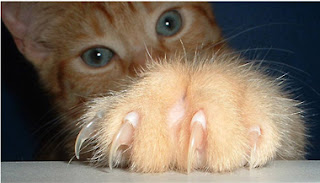Curling up with your cat as she purrs is often perceived as a comforting and positive experience for pet owners. The soothing sound of purring and the warmth of your cat's presence can create a sense of happiness, contentment, and a feeling of being settled. However, is this interpretation always accurate?
Why do cats purr?
Cats use purring as a means to communicate their emotions, similar to how humans smile when happy and dogs wag their tails. However, it's important to note that purring doesn't always indicate a cat's happiness. The reasons behind why cats purr and how they produce this sound remain a fascinating mystery.
Here are some potential reasons why your cat may be purring:
Contentment and Happiness: Cats often purr when they are feeling relaxed, comfortable, and content. It's their way of expressing happiness and satisfaction.
Seeking Attention: Cats may purr to grab your attention and get you to interact with them. They might want to play, be petted, or receive some affection from you.
Bonding and Affection: Purring can be a sign of affection and a way for cats to bond with their owners. It creates a sense of closeness and connection between the cat and their human companion.
Communication: Cats may use purring as a means of communication with other cats or animals. It can signal a non-threatening presence and promote social interaction.
Stress or Anxiety: In some cases, cats may purr when they are feeling stressed, anxious, or in pain. It can be a self-soothing mechanism to provide comfort in difficult situations.
Healing and Self-Repair: Purring has been associated with potential healing properties. It is believed that the vibrations created by purring may have a calming effect on the cat's body, promote circulation, and aid in the healing process.
It's important to observe your cat's behavior and consider the context in which they are purring to better understand their specific reasons for doing so.



